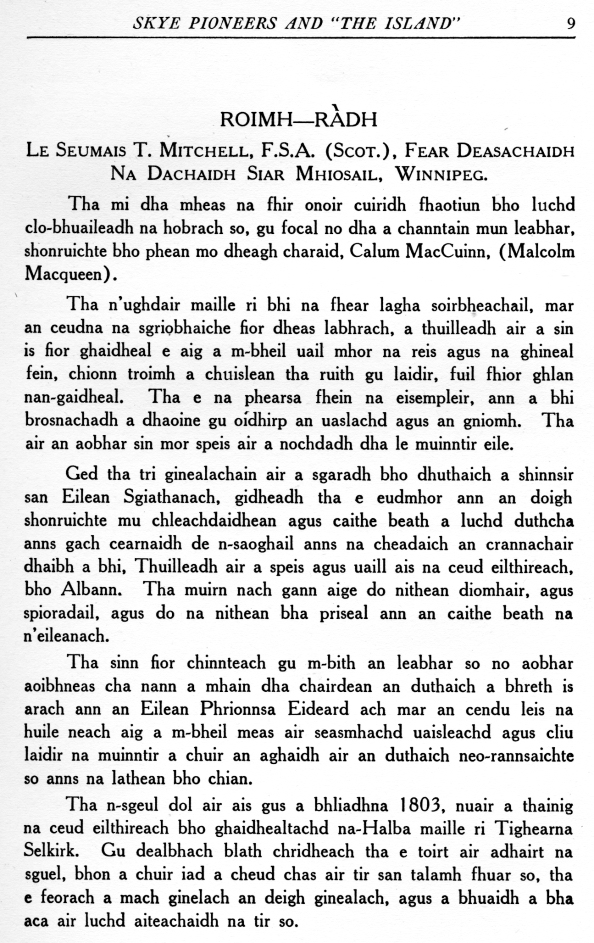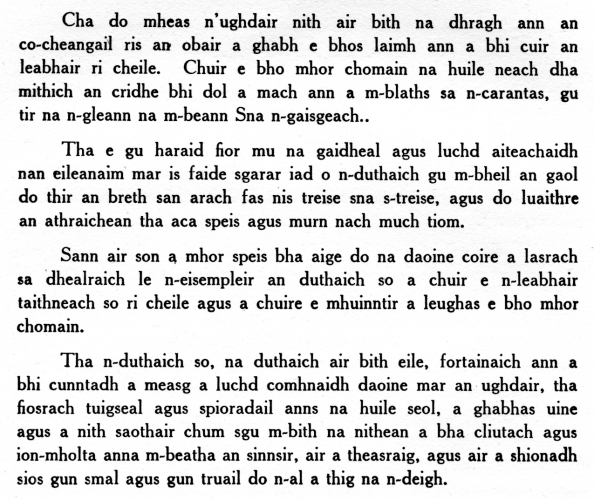|
BY
JAMES T. MITCHELL, F.S.A. (SCOT.)
EDITOR, WESTERN HOME MONTHLY
I am honored in being
invited by the publishers to write a word or two in the form of an
introduction to this most interesting volume from the pen of my good
friend Malcolm A. Macqueen.
The author is a successful
lawyer and man of affairs, as well as a facile writer, but he is more than
that-he is a Highlander, with that pride of race surging through his
blood-stream that has for years stimulated his people to high ideals and
noble action-and that in brief has brought to the Gael the respect of all
other peoples. Though three generations have separated him from the land
of his fathers, the Isle of Skye, his enthusiasm has not grown cold, but
rather have his affections for all that the Highlander stands for as a
citizen of the Empire and a factor in the world's civilization been
intensified. He combines with a strong admiration for the early Scottish
Canadian pioneers, a mystical and spiritual love for all that is beautiful
in life - a truly Hebridean characteristic.
The book will be received
with a real joy not alone by his many friends throughout Canada and by his
ain folk in his beloved Island home, Prince Edward, but by all who admire
the perseverance, endurance and nobility of character displayed by those
who faced the struggles of an unexplored land.
The narrative goes back to
1803 when Lord Selkirk arrived with his first Canadian settlement of
Highlanders. Graphically and tenderly he takes up the story from the
moment of the landing and traces his people in genealogical succession as
well as their influence throughout all parts of the continent of America.
For this masterly labor of
love no amount of research seemed too great or too tedious for the author.
Indeed he has placed all of us whose hearts still go out in warmth to the
old home across the seas, under a very deep obligation. While all other
peoples manifest a regard for the place of their birth and the ashes of
their fathers, it seems to me that in the Hebridean this worthy sentiment
finds its most beautiful expression. Time and distance in his case do not
weaken it-neither do generations efface it.
It was because of his
admiration for those who set the path and blazed the trail that we are
privileged to read a book of this nature-and a more worthy subject he
could not have chosen.
Fortunate indeed is Canada
or any other land that has among its intellectual citizens men like the
author, who from the pressing exactitudes of professional, commercial and
social life, take time to preserve memories that will always be an
uplifting and patriotic influence.

 |

